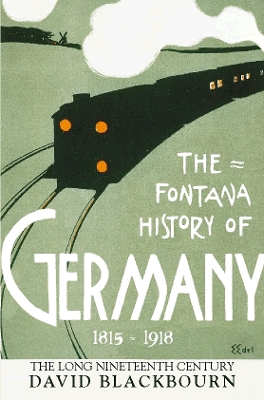Blackwell Classic Histories of Europe
1 primary work • 2 total works
Book 3
In 1815, 90 per cent of the German population were involved in agriculture and craft production, were stubbornly loyal to their village, home town or city and lived in what was then a massively decentralized state. By 1871, Bismarck and the Prussian army had united the country, transforming Germany from a "land of poets and thinkers" to one which arguably outdid Britain in its enthusiasm for the new media of the railway and the telegraph. Yet by 1914, German politics had become febrile and unstable. Mixing social, political and economic history, David Blackbourn analyzes the degree of German responsibility for the outbreak of World War I and traces the further dramatic changes in peoples' incomes and status, as the social, economic and cultural tensions that had been submerged in the previous decades suddenly came to a head.

